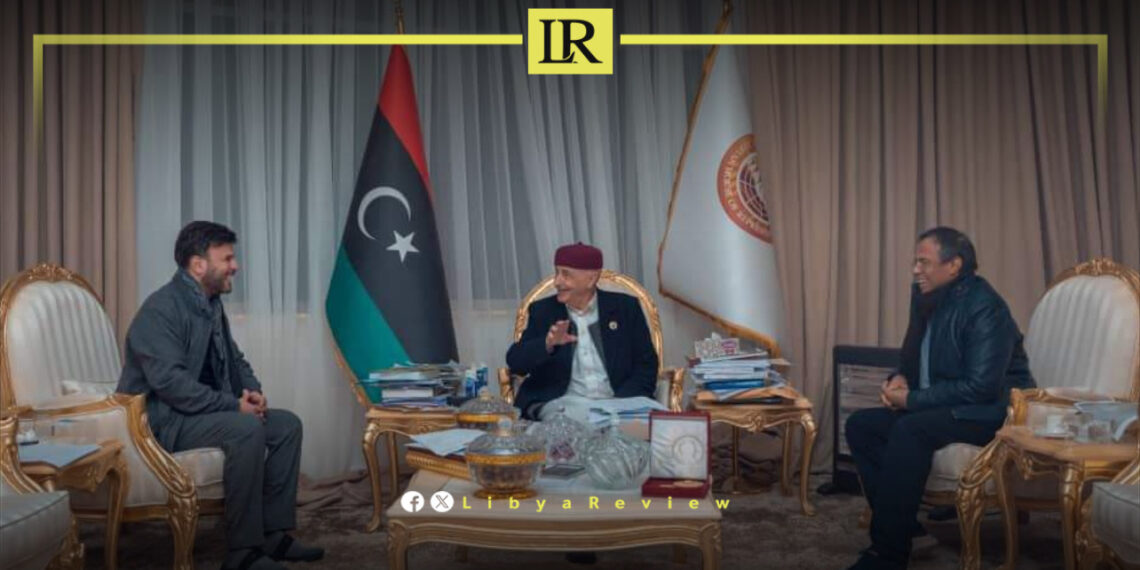On Tuesday, the Speaker of Libya’s House of Representatives, Ageela Saleh, renewed his call for the protection of the Great Man-Made River, a critical lifeline for millions of Libyans.
Saleh stressed the importance of collective national efforts to stop illegal connections, prevent water wastage, and safeguard the infrastructure from further damage.
During a meeting with Dr. Saad Boumatari, Chairman of the Great Man-Made River Project Management and Implementation Authority, Saleh reiterated that preserving the system is a national priority.
The meeting also highlighted the challenges facing the project and explored ways to ensure water access for cities and regions across Libya. Saleh also reviewed the operational progress of the system and addressed obstacles hindering its efficiency.
In recognition of his support, Dr. Boumatari presented Saleh with an honorary shield and the “Great Man-Made River Medal.” This acknowledgment reflects the Speaker’s pivotal role in enacting legislation aimed at preserving Libya’s resources and protecting the project from misuse and neglect.
The Great Man-Made River, a vast network of pipelines transporting water from the Nubian Sandstone Aquifer System, was envisioned as a solution to Libya’s water needs. Launched under the Gaddafi regime, it has since become a lifeline for millions. However, the project faces ongoing challenges, including vandalism, illegal usage, and the impact of political instability.
In October, Field Marshal Khalifa Haftar, commander of the Libyan National Army, inaugurated a new pipeline connecting Kufra in the south to Butnan and Green Mountain in the north. This extension aims to improve water distribution across Libya and underscores the project’s central role in the nation’s development.
As Libya grapples with political and economic challenges, Saleh’s commitment to protecting this vital infrastructure highlights the broader necessity of uniting efforts to preserve the country’s resources. With millions relying on the Great Man-Made River for survival, its protection is not just an infrastructure issue but a matter of national security and future stability.


